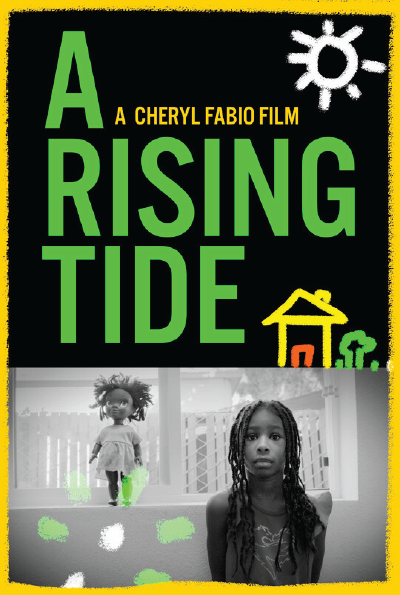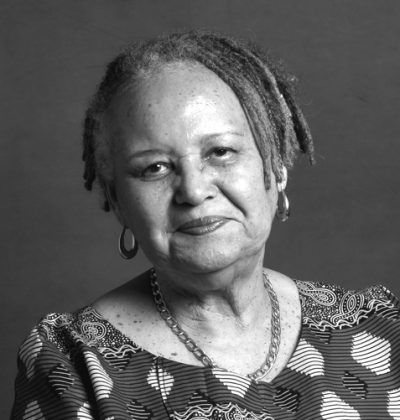
Through the eyes of Black children, their families, and the helping industry that has developed out of the housing crisis, A Rising Tide follows the strategies of families and service providers struggling with homelessness. Discussions on housing include impacts on social, emotional, educational, and medical conditions families are facing.

Cheryl Fabio spent her formative years moving from one end of the country to the next while her dad served in the Air Force. The Fabio family then settled in Oakland, CA. Her mom, Sarah Fabio, a writer in the Black Arts Movement, was raised in Nashville, Tennessee. Cheryl was sent to Fisk University for college and returned to California to study documentary film at Stanford University. Her first film, Rainbow Black: Poet Sarah Webster Fabio, was 31 minutes and an intimate look at her mother, an educator, writer, and particularly a poet. Fabio has developed unique skills and perspectives in a nonlinear career that includes social service, nonprofits, administration, and film production. In 2017, Fabio produced and directed Evolutionary Blues… West Oakland’s Music Legacy. In 2021 she made, East Oakland Counter Narratives. Her new film, A Rising Tide – chronicles homelessness and housing insecurity among Black children and families in Alameda Co. 50% of Alameda County’s homeless live in Oakland. 70% of those in Oakland are Black (2019). Fabio is the Executive Director of SARAH WEBSTER FABIO CENTER FOR SOCIAL JUSTICE (SWFCenter), the mother of 2, and the grandmother of 4.
As a documentary filmmaker, I collaborate with a team of seasoned filmmakers. We meet the challenges of production on a shoestring budget. Our goal is to tell stories of cascading realities, here, families are sometimes working multiple full-time, minimum-wage jobs. In the Bay Area, minimum wage employment doesn’t afford a family the necessities. As a result, the consequences of this deprivation increase as homelessness is prolonged. Prolonged housing precarity results in “young, working, low-income families never being able to provide housing stability for their families.” This is a hopeful film. We are both focused on the problem and offer solutions. The solution begins with our accurate understanding of, and conversations about what’s going on!
Ratings
